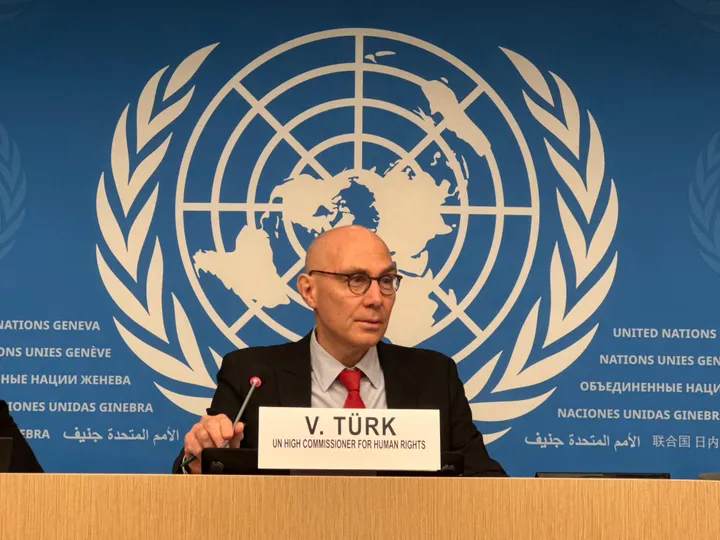The US sanctions come under the Countering America’s Adversaries Through Sanctions Act, CAATSA, signed by US President Donald Trump in 2017.
The law aims at cornering Iran, Russia and North Korea by imposing sanctions on entities and individuals in order to prevent US companies from doing business with them. The second part of the three thousand pages long law defines sanctions on Russia.
The article 231 envisions taking measures against any entity or individual who makes significant financial transactions with Russian defence and intelligence sectors.
The Trump administration took more than 3,900 distinct sanctions actions against several countries since 2017, Bloomberg reported recently.
The newest sanctions were targeted at Turkey's Defence Industries Presidency, SSB, over Ankara’s purchase of Russian made S-400 system from Rosoboronexport, Russia’s main arms export entity, in July last year.
“I think the US administration is ironically doing its best to push Turkey towards the East, namely Russia and China, by the approval of the recent sanctions,” said Helin Sari Ertem of Istanbul Medeniyet University, Associate Professor at the Department International Relations.
“Although the US administrations are definitely in need of persuading its old allies to stay with Washington and take a strong position against its rising rivals, the policies applied bring a totally opposite outcome,” she added.
What are the sanctions?
The United States imposed full blocking sanctions and visa restrictions on the head of SSB Ismail Demir, its vice president Faruk Yigit, Head of the Department of Air Defence and Space Serhat Gencoglu and Program Manager for Regional Air Defence Systems Directorate Mustafa Alper Deniz.
All properties and investment stakes of the four Turkish officials within the US jurisdiction are blocked. American citizens are prohibited from transacting with them. Additionally, any commercial or non-commercial entities that are owned, directly or indirectly, by any of the sanctioned persons will also be blacklisted.
The measure also brings a prohibition on granting specific US export licenses and authorisations for any goods or technology transferred to the Turkish institution SSB. It prohibits loans or credits by US financial institutions totalling more than $10 million in any 12-month period as well.
Another financial measure is a ban on US export-import bank assistance for exports to SSB. It requires the United States to oppose loans benefitting SSB by international financial institutions.
The US law lists 12 possible sanctions ranging from mild to harsh and so far it has not targeted Turkey's financial institutions, an extreme position the US has taken against its archrivals like Iran and North Korea.
“With current sanctions, the USA is now showing a ‘yellow card’ to Turkey, but if mutual trust cannot be built soon and the two countries insist not to remember the benefits they bring to each other, the rest of the sanctions too can be implemented by the USA as a ‘red card’ to Turkey, though this would almost mean the end of this old alliance. I guess this is quite unlikely, but not impossible,” Helin Sari Ertem said.
Can these sanctions hamper the Turkish defence industry?
The head of SSB Demir said on Tuesday US sanctions may boost domestic development.
"We will find remedies for this in our own circles. From our point of view, the issue of developing domestic industry will continue, maybe more quickly," Demir said.
Turkey’s unmanned aerial systems development programs gained Turkey the reputation as a key power in conflict zones such as Syria, Libya and Azerbaijan in recent years. More than 500 hundred companies are serving in defence and aviation sectors across the country.
Among all these talks on the sanctions, Turkey on Tuesday showcased the prototype of its first armed unmanned maritime vehicle. “Firing tests will be conducted with guided missiles manufactured by Turkish rocket maker Roketsan later in March,” Utku Alanc, the CEO of Ares Shipyard told Anadolu Agency.
“Turkey has the determination to find its own path and pay prices for that if necessary; with such a sensitive economy highly dependent on foreign investment, things will not be easy at all especially when Russia, China or Iran are not very reliable partners either,” Ertem added.
“Ours is a lonely path, full of difficulties. Turkey should manage to develop a logical way out of this crisis by calculating all pros and cons of being a 'lonely wolf' in regional and global politics.”























